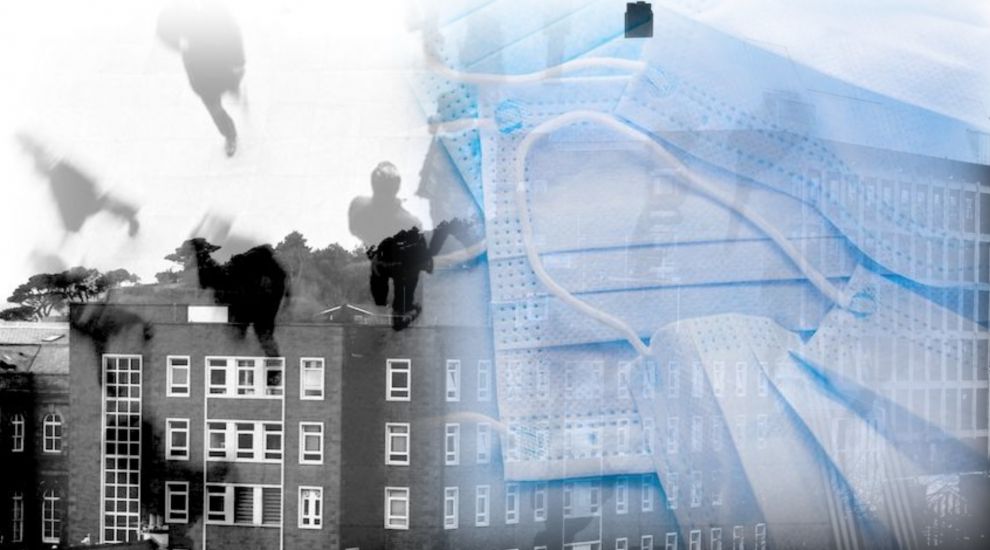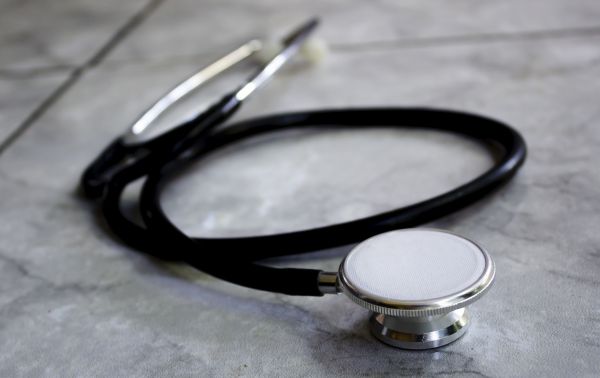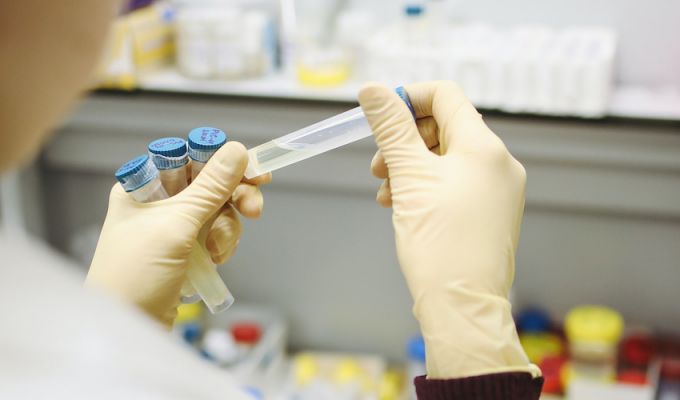


An exemption allowing some health workers to avoid self-isolation, even if they live with someone displaying covid symptoms, has been introduced over concerns a short-staffed health service will pose a greater threat to patient safety.
Updated government guidance allows for healthcare staff in both the public and private sector to be granted an exemption from the 14-day quarantine period following contact with someone who is displaying symptoms, but who has not been confirmed positive for the virus with a test.
For the public at large, anyone who lives with a person displaying symptoms resembling covid (fever, cough, headaches, tiredness, muscle ache, blocked/runny nose, gastro-intestinal symptoms, loss of smell and tase) must isolate within the household for 14 days.
Healthcare workers can now be made exempt from this requirement according to updated advice.

Pictured: Workers in a health or care setting can now be made exempt from isolation, even if they've had contact with someone showing symptoms.
The exemptions are considered on a case-by-case basis but will not be entertained in cases where the healthcare worker has either tested positive, is showing symptoms themselves, or if they live with someone who has tested positive.
A Government spokesperson also confirmed to Express that the new provision has been introduced over concerns that making staff self-isolate after such contact could threaten the running of the health service and might “pose a higher risk to patient safety.”
Of this, the spokesperson commented: “The impact that the isolation period could have on service delivery, particularly in terms of staffing, could pose a higher risk to patient safety. It is for this reason, that an isolation exemption may become necessary.”
Outlining the terms of the updated policy, the spokesperson explained: “The public policy was approved on Tuesday, 19 May which applies to all healthcare settings within the Government of Jersey as well as external providers. The policy makes provisions for exemptions but does not grant them. The granting of exemptions will be taken on a case-specific basis and consider a range of options to minimise the impact on service delivery.”
On the government website, the guidance for this healthcare worker exemption reads: “If you are a health care worker and you live with someone who has symptoms of coronavirus (and they have not been confirmed positive by a test) you are required to follow the guidance for symptomatic household isolation for 14 days.
“However, because of the nature of your work in health care settings, it would not be practical to prevent you from going to work when you are required to do so, so long as you are not showing any symptoms of the virus yourself.”

Pictured: The exemption will not be considered if either the health worker or someone in their household has tested positive for the virus.
It adds that “this decision should be made at the discretion of your employer. Your employer should make a judgment that takes into consideration the proportionality and acceptability of risk and whether or not the health care setting already has covid-19 infection.”
The spokesperson also told Express: “When exemption is applied, all associated risks of infection continue to be applied such as using PPE, and socially isolating from others when outside of work. The Government encourages private care settings to take this risk-based approach to isolation exemptions.”
These precautions are outlined in more detail within the Government public health guidance where it says that if it is agreed a healthcare worker should return to work, despite their contact with a symptomatic person, they must:
When asked by Express about the current testing regime regarding those who live with health workers, the Government confirmed: "If a health worker lives with someone who is displaying symptoms of coronavirus they will both be tested using the PCR swab test to confirm whether they are both positive for covid-19.”
The news comes as the health service looks to gradually work back towards 'business as usual' at the hospital, with new safety provisions in place, such as 'hot and cold' areas and a new Urgent Treatment Centre.
At the end of April, around one in ten health workers were absent from work, with more than 130 specifically "unavailable due to covid-19".
Comments
Comments on this story express the views of the commentator only, not Bailiwick Publishing. We are unable to guarantee the accuracy of any of those comments.